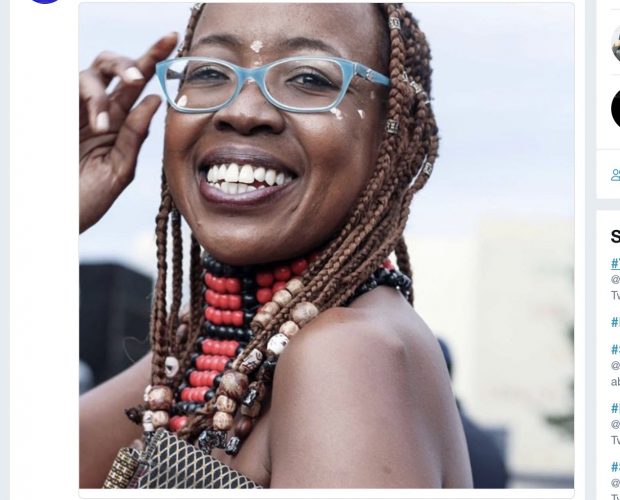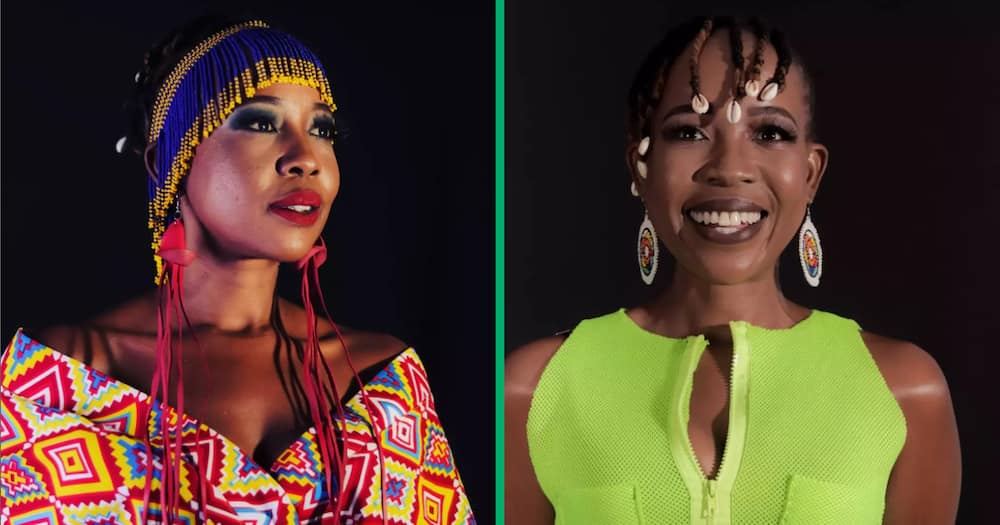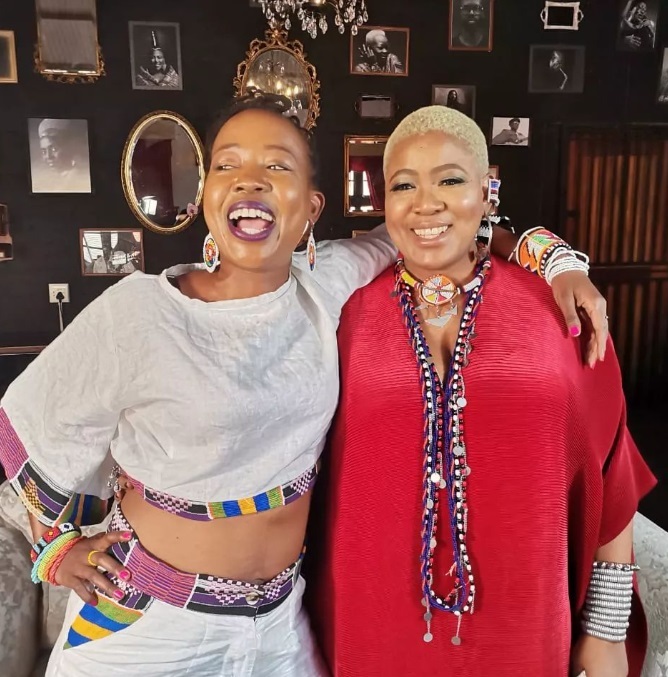Ntsiki Mazwai Questions The Difference Between Former
In the realm of contemporary social discourse, the phrase "Ntsiki Mazwai Questions The Difference Between Former" encapsulates a profound inquiry into the complexities of societal change and the legacy of the past. It articulates a fundamental question that grapples with the boundaries between what was and what is, blurring the lines between the familiar and the unfamiliar.
This evocative statement underscores the imperative to confront the remnants of the past while charting a course for the future. It serves as a catalyst for critical examination of the ways in which former structures, institutions, and ideologies continue to shape and influence the present. Historically, this question has been central to movements for social transformation, such as the civil rights movement and the anti-apartheid struggle.
Delving into the nuances of "Ntsiki Mazwai Questions The Difference Between Former", this article will explore the implications of this inquiry for our understanding of history, identity, and the trajectory of social change.
- Cry Me A River Lyrics
- Ariel Winter Height Weight Bra Size Measurements Bio
- Who Is Nia Jax Dating Now Past Relationships
Ntsiki Mazwai Questions The Difference Between Former
The phrase "Ntsiki Mazwai Questions The Difference Between Former" encapsulates a complex inquiry into the nature of change, identity, and the interplay between past and present. To grasp the essence of this statement, it is imperative to delve into its constituent aspects:
- Ntsiki Mazwai: A renowned South African poet, musician, and activist known for her outspoken views and social commentary.
- Questions: Posing inquiries, seeking knowledge and understanding.
- Difference: The state of being distinct or unlike.
- Between: Establishing a connection or comparison.
- Former: Something that existed or occurred in the past.
Ntsiki Mazwai's question delves into the complex relationship between the past and present, challenging us to confront the legacies of the former while navigating the complexities of the latter. This inquiry invites us to examine the ways in which our present is shaped by the decisions, actions, and structures of the past, and how we can learn from history to create a more just and equitable future.
| Name | Birth Date | Birth Place | Occupation |
|---|---|---|---|
| Ntsiki Mazwai | 09 August 1981 | Mthatha, South Africa | Poet,Singer, Songwriter, Social Activist |
Ntsiki Mazwai
Ntsiki Mazwai's unique perspective as a renowned South African poet, musician, and activist heavily influences her inquiry into the difference between former and present. Her outspoken views and social commentary stem from a deep understanding of the past and its impact on the present, which is reflected in her question, "Ntsiki Mazwai Questions The Difference Between Former."
Mazwai's exploration of this theme is evident in her music, poetry, and activism. For instance, her song "Black Like Me" confronts the legacy of apartheid and the ongoing struggle for racial equality in South Africa. Similarly, her poem "The Past Is Not Dead" explores the ways in which the past continues to haunt the present, shaping individual and collective identities.
By critically examining the relationship between past and present, Mazwai challenges us to confront the complexities of social change and identity formation. Her work encourages us to question the status quo, to challenge dominant narratives, and to strive for a more just and equitable society.
Questions
Within the context of "Ntsiki Mazwai Questions The Difference Between Former," the aspect of "Questions: Posing inquiries, seeking knowledge and understanding" holds immense significance. Mazwai's very inquiry stems from a desire to probe the complexities of change and identity, to challenge the boundaries between past and present. To delve into this aspect further, let's examine four key facets:
- Inquiry as Exploration
Questions serve as a catalyst for exploration, propelling us to embark on journeys of discovery. Mazwai's question invites us to interrogate the nature of change, to uncover the ways in which the past reverberates in the present, shaping our understanding of ourselves and the world around us.
- Questions Unveil Hidden Truths
By posing questions, we uncover hidden truths and challenge conventional wisdom. Mazwai's question prompts us to reconsider our assumptions about the past and its relationship to the present, urging us to confront the uncomfortable realities that may lie beneath the surface.
- Questions Foster Dialogue and Collaboration
Questions have the power to spark dialogue and foster collaboration. Mazwai's question invites us to engage in meaningful conversations, to share perspectives, and to collectively construct a deeper understanding of the issues at hand.
- Questions Inspire Action
Ultimately, questions can inspire action and social change. Mazwai's question compels us to reflect on the implications of the past for the present, empowering us to make informed choices and work towards a more just and equitable future.
Together, these facets underscore the profound importance of questions in shaping our understanding of the world and driving positive change. "Ntsiki Mazwai Questions The Difference Between Former" serves as a testament to the power of inquiry, reminding us that by embracing questions, we open ourselves up to a deeper understanding of ourselves, our history, and our potential to create a better future.
Difference
In the context of "Ntsiki Mazwai Questions The Difference Between Former," the aspect of "Difference: The state of being distinct or unlike" plays a pivotal role in shaping the very essence of Mazwai's inquiry. The concept of difference lies at the heart of her question, as she challenges us to confront the distinctions between the past and present, the familiar and the unfamiliar, the former and the latter.
Mazwai's question compels us to examine the ways in which the past differs from the present, and how these differences have shaped our understanding of ourselves and the world around us. By highlighting the "difference" between former and present, Mazwai invites us to question the assumptions and narratives that we have inherited from the past, and to consider alternative perspectives and possibilities.
Real-life examples of "Difference: The state of being distinct or unlike" within "Ntsiki Mazwai Questions The Difference Between Former" can be found in Mazwai's own experiences as a black woman in South Africa. Her upbringing during apartheid and her subsequent activism against racial inequality have given her a unique perspective on the ways in which the past continues to influence the present. Through her music, poetry, and social commentary, Mazwai challenges the dominant narratives about race, gender, and power, and encourages us to embrace difference as a source of strength and resilience.
Understanding the connection between "Difference: The state of being distinct or unlike" and "Ntsiki Mazwai Questions The Difference Between Former" is crucial for appreciating the depth and significance of Mazwai's inquiry. By embracing the idea of difference, we open ourselves up to a more nuanced and inclusive understanding of the world, and we empower ourselves to challenge injustice and work towards a more just and equitable future.
Between
Within the context of "Ntsiki Mazwai Questions The Difference Between Former," the preposition "Between: Establishing a connection or comparison" serves as a crucial linchpin, connecting the distinct concepts of "former" and "present" and inviting us to explore the complex relationship between them. Mazwai's question hinges on the notion of "betweenness," challenging us to examine the ways in which the past and present are interconnected and interdependent, while also acknowledging their differences.
The concept of "between" implies a dynamic tension between two or more entities. In the case of "Ntsiki Mazwai Questions The Difference Between Former," this tension manifests in the interplay between the past and present. Mazwai's question prompts us to consider how the past has shaped the present and continues to exert its influence, while also recognizing that the present is not merely a continuation of the past but a distinct and evolving entity in its own right.
Real-life examples of "Between: Establishing a connection or comparison" within "Ntsiki Mazwai Questions The Difference Between Former" can be found in Mazwai's own experiences as a black woman in South Africa. Her music, poetry, and activism often draw parallels between the past and present, highlighting the ways in which the legacy of apartheid continues to impact contemporary society. Through her work, Mazwai invites us to confront the uncomfortable truths of the past and to engage in critical dialogue about how we can create a more just and equitable future.
Understanding the connection between "Between: Establishing a connection or comparison" and "Ntsiki Mazwai Questions The Difference Between Former" is essential for grasping the depth and significance of Mazwai's inquiry. By embracing the idea of "betweenness," we gain a more nuanced understanding of the relationship between past and present and the challenges and opportunities that arise from this dynamic tension. This understanding empowers us to make informed choices about the future, to learn from the mistakes of the past, and to work towards a better world for all.
Former
In the context of "Ntsiki Mazwai Questions The Difference Between Former", the concept of "Former: Something that existed or occurred in the past" plays a pivotal role in shaping the very essence of Mazwai's inquiry. The word "former" implies a temporal distinction, highlighting the contrast between what existed or occurred in the past and what exists or occurs in the present. Mazwai's question challenges us to confront this distinction and to examine the ways in which the past continues to influence and shape the present.
The connection between "Former: Something that existed or occurred in the past" and "Ntsiki Mazwai Questions The Difference Between Former" is evident in Mazwai's own experiences as a black woman in South Africa. Her upbringing during apartheid and her subsequent activism against racial inequality have given her a unique perspective on the ways in which the past continues to cast its shadow over the present. Through her music, poetry, and social commentary, Mazwai challenges the dominant narratives about race, gender, and power, and encourages us to confront the uncomfortable truths of the past in order to build a more just and equitable future.
Understanding the connection between "Former: Something that existed or occurred in the past" and "Ntsiki Mazwai Questions The Difference Between Former" is crucial for appreciating the depth and significance of Mazwai's inquiry. By embracing the idea of "former," we gain a more nuanced understanding of the relationship between past and present and the challenges and opportunities that arise from this dynamic tension. This understanding empowers us to make informed choices about the future, to learn from the mistakes of the past, and to work towards a better world for all.
Throughout this exploration of "Ntsiki Mazwai Questions The Difference Between Former," we have delved into the complexities of change, identity, and the interplay between past and present. Mazwai's question invites us to confront the legacies of the past while navigating the complexities of the present, challenging us to rethink the boundaries between what was and what is.
Key insights from this article include:
The significance of questioning and critically examining the past to gain a deeper understanding of the present. The dynamic relationship between past and present, with the former continuing to influence and shape the latter. The importance of embracing difference and challenging dominant narratives to create a more inclusive and just society.Ntsiki Mazwai's inquiry reminds us that the past is not merely a relic of history but an active force that shapes our present and future. By embracing the complexities of "The Difference Between Former," we empower ourselves to learn from the past, challenge injustices, and work towards a more equitable and sustainable world.

Ntsiki Mazwai wants to know why people think she's dirty The Citizen

Ntsiki Mazwai Questions the Difference Between Former President Jacob

Ntsiki set to ask sister Thandiswa hard questions!! Daily Sun